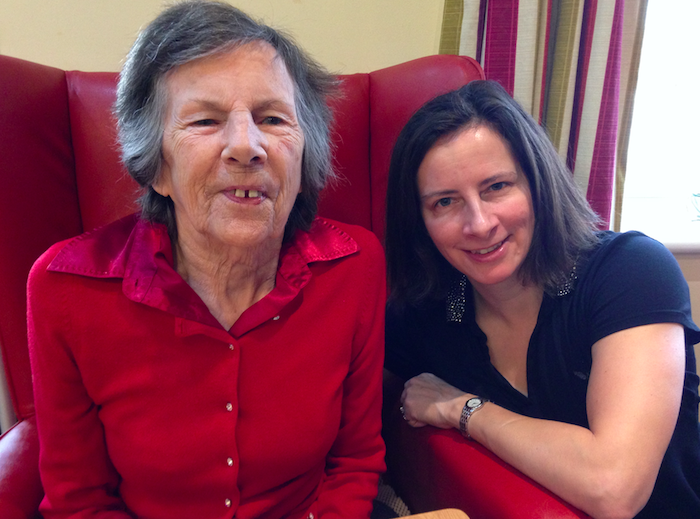If you’re caring for a loved one with dementia, you may resent the role if you have anger or frustration towards the person because of their past behaviour. Christina Neal felt the same about her mum and confronted her issues…
I’m going to ask you a controversial question. Are you the right person to care for a loved one with dementia? I asked myself this question many times when caring for my mum. Was I capable of looking after her and could I do it with a clear head while showing compassion? Could I make the right decisions when she was no longer able to do so? The moral dilemma that carers face is very seldom talked about in my view. We don’t wake up one day and choose to be carers. We have no choice. The role creeps up on us when we’re not expecting it, causing us to change, adapt and rearrange our lives to compensate for a loved one in need of our help and support.
In the beginning, I resented the burden of caring for my mum. I know that sounds selfish. I didn’t feel that I deserved the responsibility. I had just got married and landed my dream job. I wanted to get on with my own life while I still had my own health. There was also the issue of my relationship with my mum. We hadn’t always got along. When I was a child, she could be cold and impatient. She did very little to build up my confidence and self-esteem. She could be critical, harsh and moody. I left home at the earliest opportunity.
Unresolved issues
In my adult life, we had a better relationship and got along reasonably well. She was proud of my achievements as a journalist. But I still had a lot of unresolved issues about how she’d treated me as a child. When she began to need my help, I realised that if I was going to care for her and do it with genuine compassion then I’d need to deal with those issues. I’m not afraid to admit that I signed up for counselling. Mum wasn’t in any position to discuss the past with me as the dementia took hold of her fairly quickly. I had to deal with the past on my own without being able to ask her why she had said or done certain things to me when I was younger.
The situation was made harder by the fact that she would often say and do horrible things when I was her carer. She would sometimes shout insults and call me names, or even lash out. It reminded me of the mum I had known as a child and there were many occasions when I found it distressing, but I eventually realised it was her dementia creating this behaviour. Quite simply, it wasn’t her fault.
After working through my issues, I felt more relaxed and philosophical about looking after her. It was a role I began to embrace. In the long-term, I became very protective of her and was it was me caring for her and not someone else. Once I understood how the dementia affected her and how to manage her needs, we got along well and even became close in her final few years. The one positive thing about dementia is that it actually improved our relationship. She realised she needed me and on a good day, she could see how much I was doing to take care of her. She showed gratitude and it was wonderful to feel valued and appreciated by my mum. In her last few years, we became the best of friends.
If you’re struggling with unresolved personal issues when caring for a relative with dementia, and you think it could affect your ability to care for the person, work through those issues – don’t bottle them up or you may end up resenting the person you’re caring for. Confront them. As hard as it is, it will make your relationship with the person stronger.
